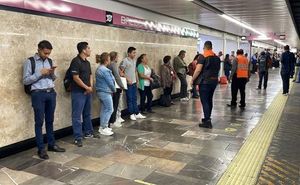On April 30, 2025, passengers in Salvador may face significant delays in public transportation as bus drivers from the Sindicato dos Rodoviários da Bahia have announced a protest. The union stated that buses from the Plataforma and OT Trans companies will have their departures delayed from their garages as part of ongoing salary negotiations. This action is the latest in a series of measures taken by the union to address what they describe as an impasse in discussions regarding their salary campaign.
The delay is expected to last from 4 AM to 8 AM, affecting many commuters who rely on these services for their morning travel. According to the union, this protest is a response to the employers' alleged intransigence during negotiations. The union has already held four meetings with the business owners, but they claim no substantial proposals have been presented to address their demands.
Daniel Mota, a director of the union, emphasized the importance of this action during an interview, stating, "We will meet early at 3 AM in a location in the city to organize how the delay will occur. The idea is to start at 4 AM, which is the first scheduled departure. We expect to conclude by around 8 AM, but we will have more precise details after our early morning meeting." This strategic timing highlights the union's intention to maximize visibility for their cause while minimizing the disruption to commuters.
The Sindicato dos Rodoviários has voiced concerns that employers are attempting to strip away historical rights that have been fought for over the years. These rights include the elimination of partial workdays, changes to weekend breaks, and the implementation of a time bank system, which the union argues could undermine the working conditions of drivers.
In light of these developments, the union has not ruled out the possibility of a full-scale strike if negotiations do not progress satisfactorily. Mota indicated that while they are currently pursuing these targeted actions, a strike remains a last resort. "As long as we are in negotiations, we will continue to conduct these actions. We do not rule out a strike if nothing is resolved, but this decision will be made only if there is truly no agreement," he stated.
Previously, on April 10, 2025, the bus drivers conducted an assembly that resulted in the closure of the Lapa Station, causing significant traffic disruptions in the area. During that assembly, the drivers expressed their frustration, noting that the representatives from the companies had dismissed all demands, including a proposed salary adjustment of 5% above inflation.
The union has also raised concerns about changes to work schedules and the failure to adhere to agreed-upon rest periods. They claim that drivers are often required to work beyond the standard 7-hour daily limit without proper notification of schedule changes.
To address the anticipated impact of the delays, the Secretaria de Mobilidade (Semob) is preparing a contingency plan. The agency aims to mitigate disruptions by reallocating bus fleets to cover affected routes during the protest. In a statement, Semob noted, "Our teams will be on the ground to guide users during this protest period. We hope for a resolution between employers and the bus drivers so that the public is not adversely affected by the absence of this essential service."
As the situation unfolds, commuters in Salvador are advised to stay informed about the latest developments regarding public transportation. The union's actions reflect a broader struggle for fair labor practices and adequate compensation in the face of what they perceive as disrespect from employers.
The ongoing negotiations highlight the critical balance between labor rights and the need for reliable public services. As both sides prepare for potential escalation, the outcome of these discussions will have lasting implications for the working conditions of bus drivers and the daily lives of Salvador's residents.
In summary, the events of April 30 are a significant chapter in the ongoing salary campaign by the Sindicato dos Rodoviários da Bahia. With the potential for further action looming, the coming days will be crucial in determining the future of labor relations within Salvador's public transportation sector.







